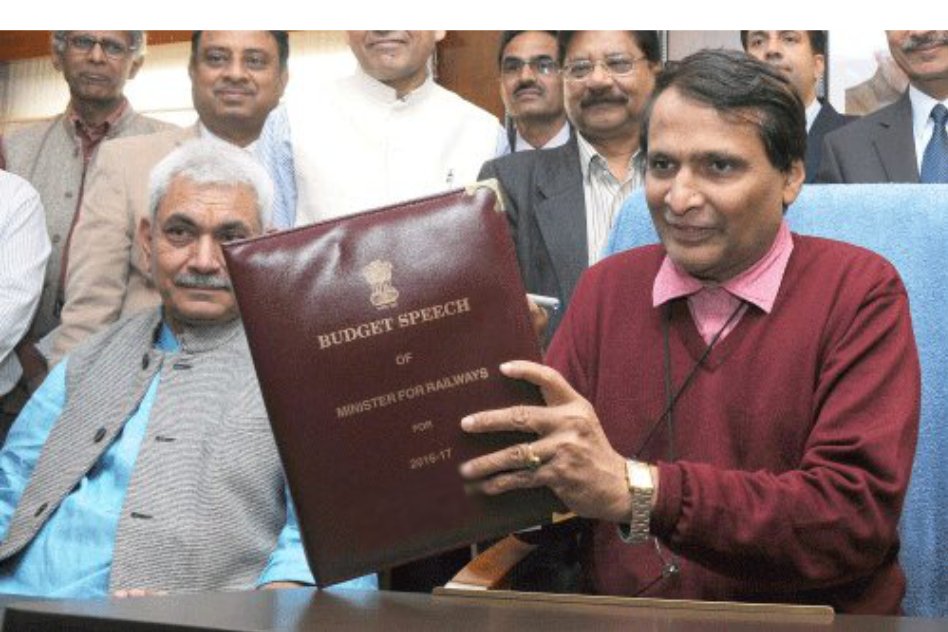
There Won't Be Any Separate Railway Budget From 2017
13 Aug 2016 7:31 AM GMT
From the next financial year, there will not be a separate railway budget. The finance minister has agreed to the proposal of merging the transporter’s annual exercise with the general budget, thus putting an end to the 92-year-old practice. According to Times of India, a five-member committee has been set up by the government to work out on the planning for the exercise. Railway minister will announce the projects following the annual budget speech.
The History of Railway Budget
Railway budget in India was separated from the general government finances in 1924 on the recommendation of the 10-member Acrowth Committee. In its 92-year journey, India witnessed some historic railway budgets. Lalu Prasad Yadav remained the Railway Minister from 2004 to May 2009. He has the unique distinction of presenting 6 consecutive railway budgets.
In many cases, critics have pointed out politicians have used the railway budget for their own image-building. Many budgets reflected political priorities of the incumbent government.
What the Constitution says
The Budget of the Indian Railways is presented separately to Parliament and dealt with separately, although the receipts and expenditure of the Railways form part of the Consolidated Fund of India and the figures relating to them are included in the ‘Annual Financial Statement’.
What led to the merger?
The move is being taken following the suggestion of NITI Aayog members Bibek Debroy and Kishore Desai, who in their report on restructuring the public transport, suggested the merging of the railway budget and Union budget as it will take the burden from the Indian Railways. Today, the railway budget is quite small at Rs 1.21 trillion compared to India’s overall budget of Rs 19.8 trillion.
Debroy questioned the constitutional requirement of railway budget because the Constitution does not talk about Railway budget in particular. He believes that a lot of resources are wasted in the process of preparing the railway budget resulting a complicated relationship between the finance ministry and the Indian Railways. Also, a factor of populism comes in between as several ministers demand for new trains and stops.
Way Forward
With the merging, it could help usher in commercial accounting practices, clean up finances, establish a framework for sharing social costs between departments and reinstate the commercial character of railways. Railways will now become just another government department that will receive budgetary support but under the oversight of the finance minister. Railways will now segregate the allocated funds for various purposes.
 All section
All section













